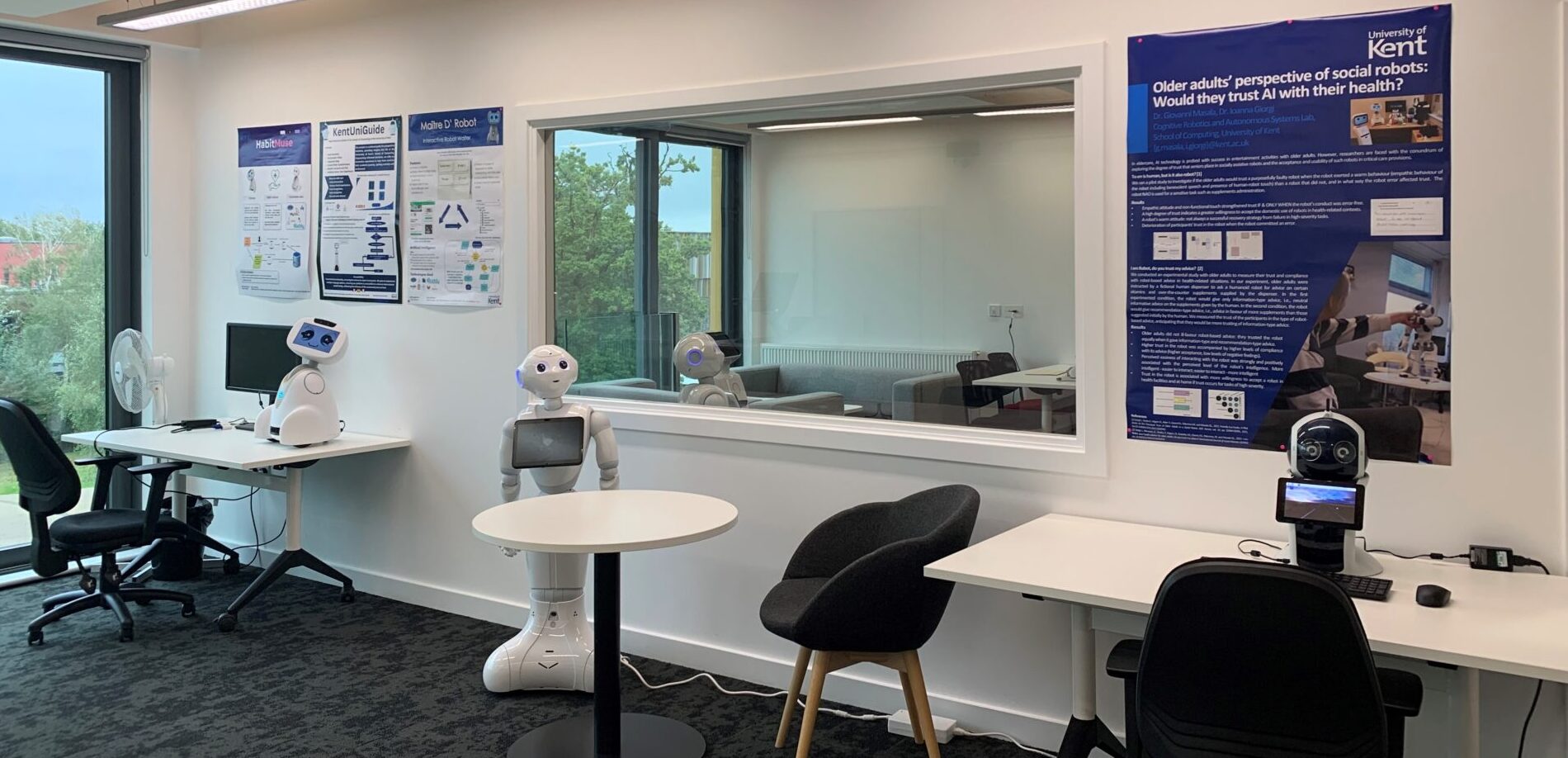We aim to create technologies that enhance human well-being and societal integration through cross-disciplinary collaboration across fields such as artificial intelligence, machine learning, robotics, cognitive science, psychology, and healthcare, which translate into real-world applications in healthcare, manufacturing, service, and domestic environments.
Robotics and Assistive technologies CEntre (RACE)
Featured story

Content
Our key research themes
Cognitive Robotics
We conduct multidisciplinary research focused on developing robots capable of intelligent behaviour to autonomously perform complex tasks by mimicking human cognitive processes such as perception, reasoning, learning, and decision-making. This theme integrates insights from artificial intelligence, neuroscience, psychology, and robotics to create systems that can adapt to complex, dynamic environments and interact naturally with humans. Key areas of research include language (& multiple language) cognition, robotic vision. sensorimotor coordination and their collective role in embodied conceptual understanding.
Human-Robot Interaction
Our research focuses on designing and implementing intuitive and effective interaction paradigms between humans and autonomous robots. We conduct pilot studies to explore trust, acceptability, and the integration of robots, particularly among older demographics. These studies aim to assess how robots can support healthcare, social assistance, and other applications.
Assistive Technologies
This theme focuses on assistive technologies to support people living with disabilities and vulnerable populations. It includes the development of advanced mobility aids such as powered wheelchairs (PwC) to enhance movement and accessibility for users with limited mobility. Research in this field focuses on creating more efficient, adaptive, and user-friendly devices that can be personalised to meet individual needs, increase safety, comfort, and ease of operation, making everyday tasks more manageable and promoting greater independence for users in both personal and public spaces.
Pervasive Computing
We aim to develop multi-sensory systems that enable robots to understand and respond to human behaviour. We explore how IoT-enabled robots, using mobile and wearable sensors, can detect and model human activities in real-time. This work spans applications in healthcare, industrial automation, and smart cities, where robots collaborate with IoT devices to enhance autonomy, improve interaction, and optimise performance in dynamic environments. Our goal is to advance adaptive, context-aware robotic systems and ambient intelligence.
Augmented and Virtual Reality (Digital Human)
Our research focuses on the design, development, and deployment of digital technologies, specifically virtual, augmented and extended reality (VR/AR/XR) combined with sensing technologies and machine learning. We aim to integrate these technologies into real-world environments to enhance user interaction, learning, and decision-making processes, across healthcare, education, training, and creative industries.
Ethics and Society
Our research focuses on the ethical, social, and legal challenges of deploying cognitive robots and assistive technologies, ensuring these innovations align with societal values and enhance human well-being. We examine the impact of these technologies on privacy, autonomy, and equity, aiming to create frameworks that promote responsible development, minimise risks, and ensure positive societal outcomes, especially in healthcare and personal assistance.
Education and Training
We aim to provide education and training opportunities for students, researchers, and professionals in the fields of cognitive robotics, human-robot interaction, and assistive technologies, preparing the next generation of experts.